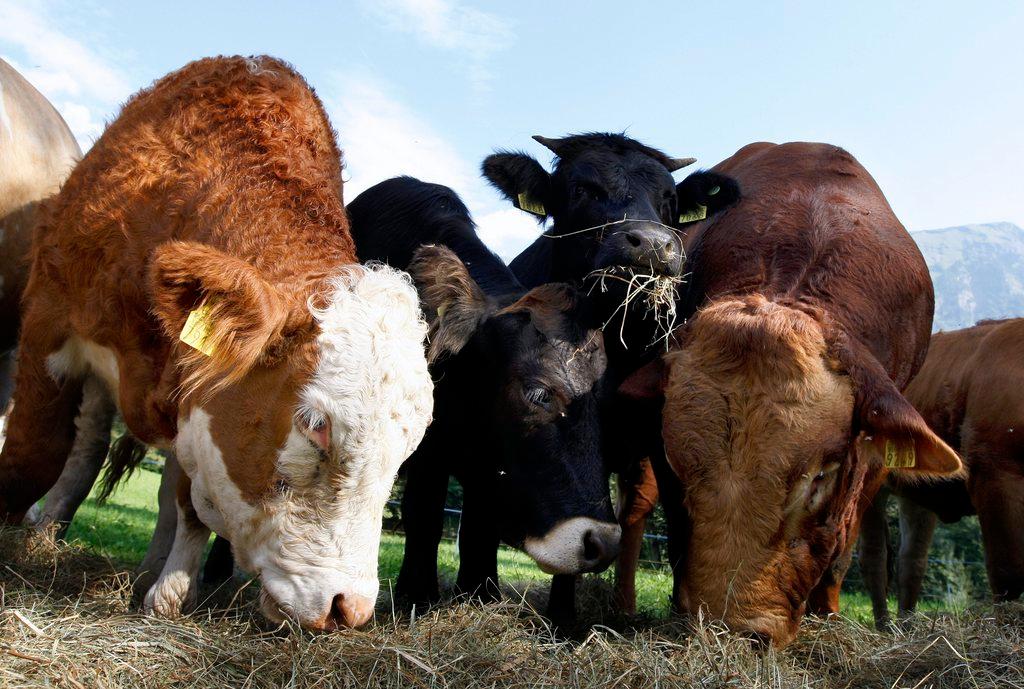
Initiative launched to end factory farming in Switzerland

Animal rights groups and environmental organisations launched a popular initiative to ban intensive, large-scale livestock farming on Tuesday. They have 18 months to collect the required 100,000 valid signatures.
The “No factory farming in Switzerland” initiative calls for a constitutional amendment that will affect animal husbandry practices in Switzerland.
The initiative hopes to put an end to questionable conditions for livestock in Switzerland, such as confining ten pigs in a pen the size of a car parking spot, reported the Swiss News Agency on Tuesday.
Animal dignity
The initiative aims to put a brake on the increasing trend towards large-scale farming, high-productivity breeding and production optimisation, according to the groups behind the campaign.
They hope to achieve these objectives by amending article 80a of the Federal Constitution.
+ Switzerland bans crustacean cruelty
The government must protect the dignity of animals within the animal husbandry industry, which includes the right not to live in intensive, large-scale livestock farming conditions that systematically violate animal welfare, the organisations wrote.
If the initiative is accepted, the government must define criteria for animal-friendly housing and care, ensure access to the outdoors, as well as limit the maximum number of animals kept in a barn.
It would also need to create further regulations for importing animal products for food purposes.
The maximum transition period for implementing the initiative would be 25 years.

More
Getting your teeth into Swiss meat prices

In compliance with the JTI standards
More: SWI swissinfo.ch certified by the Journalism Trust Initiative






























You can find an overview of ongoing debates with our journalists here . Please join us!
If you want to start a conversation about a topic raised in this article or want to report factual errors, email us at english@swissinfo.ch.